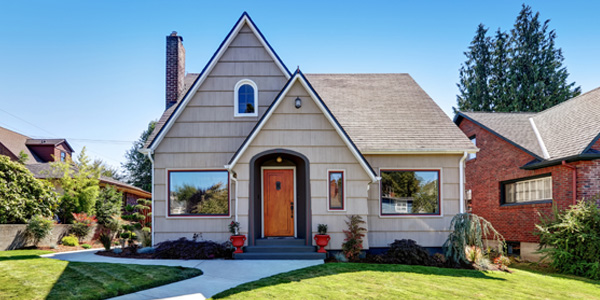Years ago, having a big back yard with an in-ground pool meant keeping your kids and their friends “in sight”. At your present stage in life (widowed and retired, age 67), these amenities have become more burden than boon. You continue to prize owning property over being a tenant, but you’re ready to downsize to more manageable living quarters.
Admittedly, your initial explorations were somewhat of a shock price-wise, since you’re looking for a property much smaller than the one you now own. Still, you have discovered several neighborhoods within 30-60 minutes’ drive from your present location that are very appealing, and have alerted a realtor friend to be on the watch for listings there. While you don’t expect to “stage” your own property for a sale, the realtor agreed that you’ve taken pride in keeping it well-maintained both inside and out and that it has “curb appeal”. From a financial standpoint, you do have cash reserves, but are obviously reluctant to cash in portfolio assets for the down payment on a new home before completing the sale of the present one. You also do not want to make monthly payments going forward.
Once you’ve pinpointed a home that requires less maintenance and that suits your needs at your current stage of life, you might consider using a Home Equity Conversion Mortgage for Purchase as the means of purchasing a new principal residence.
In applying for a HECM For Purchase, you’d be telling the mortgage lender that you’re buying a new home. The lender would then calculate the amount of money you qualify to receive as though you already owned the property. You will never have to make any payments for so long as you are living in the property, and none of the money your borrow with the reverse mortgage has to be paid back until such time as you are no longer occupying that property.
It’s possible, given your description of how well-maintained your present property is (and the timing of the sale), that you might be able to generate enough money from the sale to easily pay the larger down payment required for a HECM for Purchase transaction on a smaller property, possibly even enough to cover the costs of moving. However, as you mentioned, the timing must be coordinated carefully, and you may in fact need to liquefy some of your portfolio assets.
Most important, because smaller has begun to seem better, a reverse mortgage for purchase can help you transition into the next best phase of your life.
https://mutualreverse.com/david-garrison
Readers, if you’d like to see what you might qualify for with a reverse mortgage in Indiana, or to download your Reverse Mortgage Guide Click Here (and scroll down).
If your heirs want to keep the home after your death, they will have to repay either the full loan balance or 95% of the home’s appraised value, whichever is less. Borrower must occupy home as primary residence and remain current on property taxes, homeowner’s insurance, the costs of home maintenance, and any HOA fees. David Garrison, NMLS ID 1595194. Mutual of Omaha Mortgage, Inc. dba Mutual of Omaha Reverse Mortgage, NMLS ID 1025894. 3131 Camino Del Rio N 1100, San Diego, CA 92108. Indiana-DFI Mortgage Lending License 43321. Michigan 1st Mortgage Broker/Lender/Servicer Registrant FR0022702. These materials are not from HUD or FHA and the document was not approved by HUD, FHA or any Government Agency. Subject to credit approval. For licensing information, go to: www.nmlsconsumeraccess.org Equal Housing Lender

